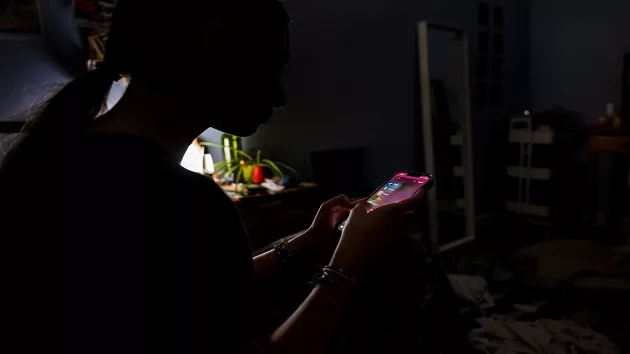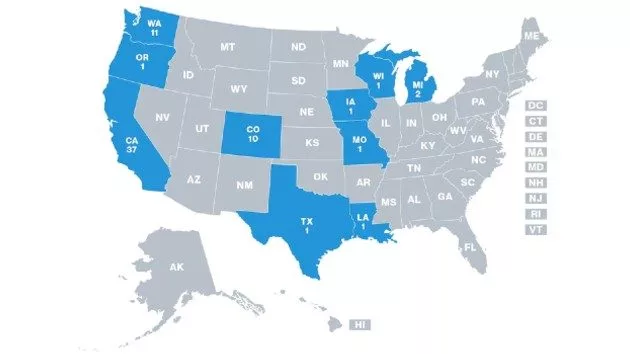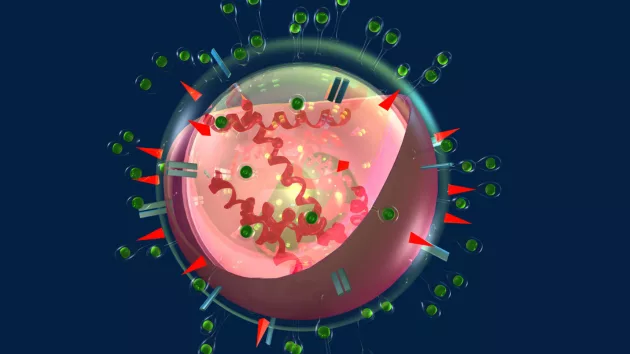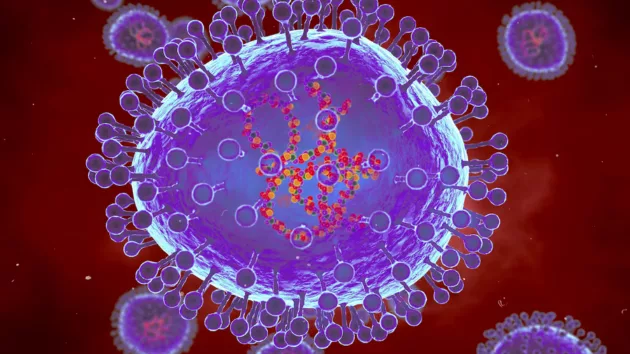(NEW YORK) — Creating a surgeon general’s warning for social media is a necessary step to respond to the “defining public health challenge of our time,” U.S. Surgeon General Vivek Murthy told ABC News’ Elizabeth Schulze in an interview on Monday.
“We are living in the middle of a youth mental health crisis, and I have said publicly that this is the defining public health challenge of our time. I firmly believe that. And social media has emerged as an important contributor to that youth mental health crisis, so making social media safer for our kids — warning kids and parents about the harms associated with social media — is urgent,” Murthy said.
“It’s part of addressing the broader mental health crisis that we’re living through,” he said.
The warning, which would appear universally in social media feeds to raise awareness about the risks of social media on adolescent mental health, would need congressional action to be implemented. Testing on the best messaging and frequency of the warnings would then be conducted, Murthy said, with the goal of “driving toward behavior change.”
“I was getting questions from parents all across the country about social media, and they wanted to know, is this safe for my kids? And what we can conclude, based on our research and talking to experts from around the country, was that social media, number one, has not been proven to be safe for kids. And number two, there is mounting evidence of harms associated with social media use,” Murthy told Schulze.
“So, we want to make sure that parents and kids know that. And that’s where a warning label comes into play.”
The issue is also urgent because 95% of adolescents are on social media, Murthy said, echoing the case he made in a New York Times op-ed.
“The data tells us that kids who spend an average of three hours or more on social media a day, they experience a doubling of their risk for anxiety and depression symptoms. That’s pretty profound, but also particularly disturbing when you keep in mind that the average amount of use for adolescents today is 4.8 hours a day,” he said.
When tobacco warnings were implemented in the U.S. in 1966, 42% of Americans smoked, Murthy said. Today, that’s down to 12%. However, that change took nearly six decades and was only one step in a larger effort of education and reform.
“While we are late as a society to ultimately making these platforms safer, it’s urgent that we start taking action now. Because the truth is, there’s nothing more important to the mental health and well-being of our kids,” Murthy said.
“I say that not just as surgeon general and as a doctor, but as a father to of two young kids who I’m worried about, just like millions of parents are worried about the mental health and well-being of their children,” Murthy said.
Murthy said his kids aren’t allowed to use social media until they graduate from middle school, at which point he and his wife will review the data around safety and whether any platform regulations have been implemented, as well as the ability of his kids to safely navigate it.
For kids who are already on social media, the goal should be creating phone-free zones, he said, like dinner time, social interactions and bedtime. He encouraged parents to build communities around phone-free zones, because it’s “much easier to do when we are doing them collectively as a group of parents.”
Murthy acknowledged that on a larger scale, the ball is in Congress’ court — both in implementing warnings, and in providing broader safeguards against social media risks to mental health. Particularly in a tense election year where legislative gridlock is the norm, that poses a problem.
“But as a nation, we can do hard things when it comes to protecting and safeguarding our kids. We should be ready to do everything possible to achieve that end,” Murthy contended.
In the meantime, Murthy is committed to raising awareness in hopes that parents and kids will begin limiting screen time.
“The bottom line is, again, making the platform safer is the key. But until then, until that actually happens, it’s important that we make sure parents and kids know what we now know in medicine and public health, which is this association between social media use and mental health harms.”
Copyright © 2024, ABC Audio. All rights reserved.






